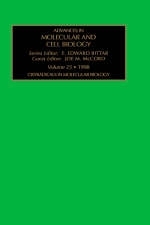
Oxyradicals in Medical Biology
Seiten
1998
JAI Press Inc. (Verlag)
978-0-7623-0379-3 (ISBN)
JAI Press Inc. (Verlag)
978-0-7623-0379-3 (ISBN)
- Titel ist leider vergriffen;
keine Neuauflage - Artikel merken
Is this suicide response an evolutionary fail-safe device to curtail tumorogenesis? Does oxidative stress-induced apoptosis account for the loss of immune cells in AIDS? This title attempts to present the spectrum of roles, both good and bad played by active oxygen species as understood in the evolution of the field of free radical biology.
The rapid expansion of the area of free radical biology in the last 25 years has occurred within a framework of assumptions and preconceived notions that has at times directed the course of this movement. The most dominant of these notions has been the view that free radical production is without exception a bad thing, and that the more efficient our elimination of these toxic substances, the better off we will be. The very important observation by Bernard Babior and colleagues in 1973 that activated phagocytes produce superoxide in order to kill micro organisms, served to illustrate that constructive roles are possible for free radicals. For many in the field, however, this merely underscored the deadly nature of oxygen-derived radicals, both from the microbe's point of view and from the host's as well. (Phagocyte-produced superoxide is responsible in part for the tissue injury manifested as inflammation. See Harris and Granger, Chapter 5, and Leff, Hybertson and Repine, Chapter 6.)
Mother Nature, however, has a penchant for being able to make a silk purse from a sow's ear. If one is dealt a bad hand, one must simply make the best of it. After two decades of focusing on the destructive side of free radicals, the last few years have begun to reveal a new and finer perspective on free radical metabolism - a role in regulation of cellular function (see Schulze-Osthoff and Baeuerle, Chapter 2). Evidence from a number of sources suggests that an increase in the oxidative status of cell encourages that cell to grow and divide. Increasing the expression of mangnese superoxide dismutase can suppress the malignant phenotype of melanon cells (see Oberley and Oberley, Chapter 3). Oxidative stress beyond a certain poitosis (from the Greek, literally "to fall apart"). Is this suicide response an evolutionary fail-safe device to curtail tumorogenesis? Does oxidative stress-induced apoptosis account for the loss of immune cells in AIDS (see Flores and McCor Chapter 4)?
This volume attempts to present the spectrum of roles, both good and bad played by active oxygen species as understood at this point in the evolution of this field of free radical biology.
The rapid expansion of the area of free radical biology in the last 25 years has occurred within a framework of assumptions and preconceived notions that has at times directed the course of this movement. The most dominant of these notions has been the view that free radical production is without exception a bad thing, and that the more efficient our elimination of these toxic substances, the better off we will be. The very important observation by Bernard Babior and colleagues in 1973 that activated phagocytes produce superoxide in order to kill micro organisms, served to illustrate that constructive roles are possible for free radicals. For many in the field, however, this merely underscored the deadly nature of oxygen-derived radicals, both from the microbe's point of view and from the host's as well. (Phagocyte-produced superoxide is responsible in part for the tissue injury manifested as inflammation. See Harris and Granger, Chapter 5, and Leff, Hybertson and Repine, Chapter 6.)
Mother Nature, however, has a penchant for being able to make a silk purse from a sow's ear. If one is dealt a bad hand, one must simply make the best of it. After two decades of focusing on the destructive side of free radicals, the last few years have begun to reveal a new and finer perspective on free radical metabolism - a role in regulation of cellular function (see Schulze-Osthoff and Baeuerle, Chapter 2). Evidence from a number of sources suggests that an increase in the oxidative status of cell encourages that cell to grow and divide. Increasing the expression of mangnese superoxide dismutase can suppress the malignant phenotype of melanon cells (see Oberley and Oberley, Chapter 3). Oxidative stress beyond a certain poitosis (from the Greek, literally "to fall apart"). Is this suicide response an evolutionary fail-safe device to curtail tumorogenesis? Does oxidative stress-induced apoptosis account for the loss of immune cells in AIDS (see Flores and McCor Chapter 4)?
This volume attempts to present the spectrum of roles, both good and bad played by active oxygen species as understood at this point in the evolution of this field of free radical biology.
Contents. List of Contributors. Preface (J.M. McCord). An Overview of Oxyradicals in Medical Biology (I. Fridovich). Regulation of Gene Expression by Oxidative Stress (K. Schulze-Osthoff and P.A. Baeuerle). Oxyradicals and Malignant Transformation (L.W. Oberley and T.D. Oberley). Oxidative Stress and Human Immunodeficiency Virus (S.C. Flores and J.M. McCord). Neutrophils and Ischemic/Reperfusion Injury (N.R. Harris, and D.N. Granger). Oxyradicals and Acute Lung Injury (J.A. Leff, B.M. Hybertson, and J.E. Repine). Nitric Oxide Regulation of Superoxide and Peroxynitrite-Dependent Reactions (H. Rubbo and B.A. Freeman). Iron, Oxygen Radicals, and Disease (S.K. Nelson and J.M. McCord). Index.
| Erscheint lt. Verlag | 23.4.1998 |
|---|---|
| Reihe/Serie | Advances in Molecular & Cell Biology |
| Verlagsort | Oxford |
| Sprache | englisch |
| Gewicht | 490 g |
| Themenwelt | Medizin / Pharmazie ► Medizinische Fachgebiete ► Biomedizin |
| Studium ► 1. Studienabschnitt (Vorklinik) ► Histologie / Embryologie | |
| Naturwissenschaften ► Biologie ► Genetik / Molekularbiologie | |
| Naturwissenschaften ► Biologie ► Zellbiologie | |
| ISBN-10 | 0-7623-0379-4 / 0762303794 |
| ISBN-13 | 978-0-7623-0379-3 / 9780762303793 |
| Zustand | Neuware |
| Haben Sie eine Frage zum Produkt? |
Mehr entdecken
aus dem Bereich
aus dem Bereich
Zytologie, Histologie und mikroskopische Anatomie
Buch | Hardcover (2022)
Urban & Fischer in Elsevier (Verlag)
54,00 €
Gewebelehre, Organlehre
Buch | Spiralbindung (2024)
Urban & Fischer in Elsevier (Verlag)
25,00 €


